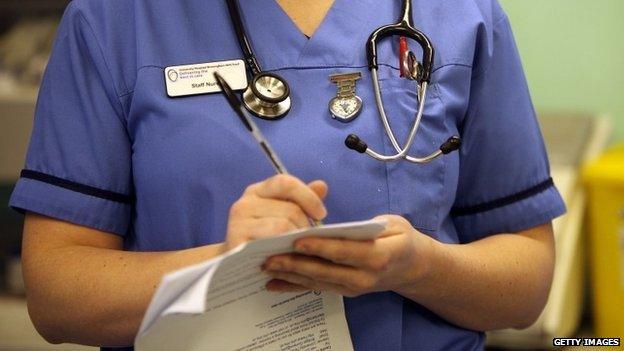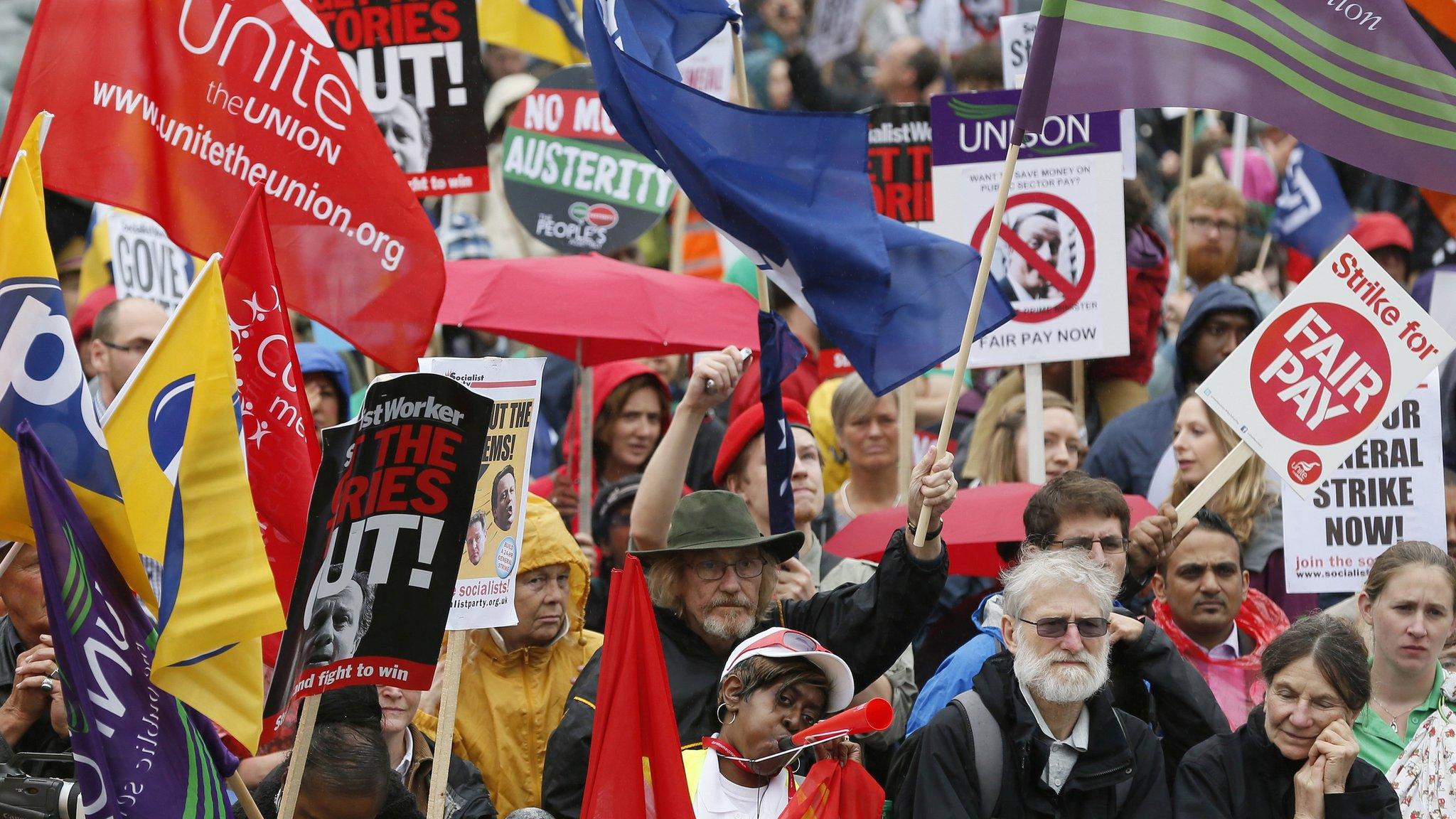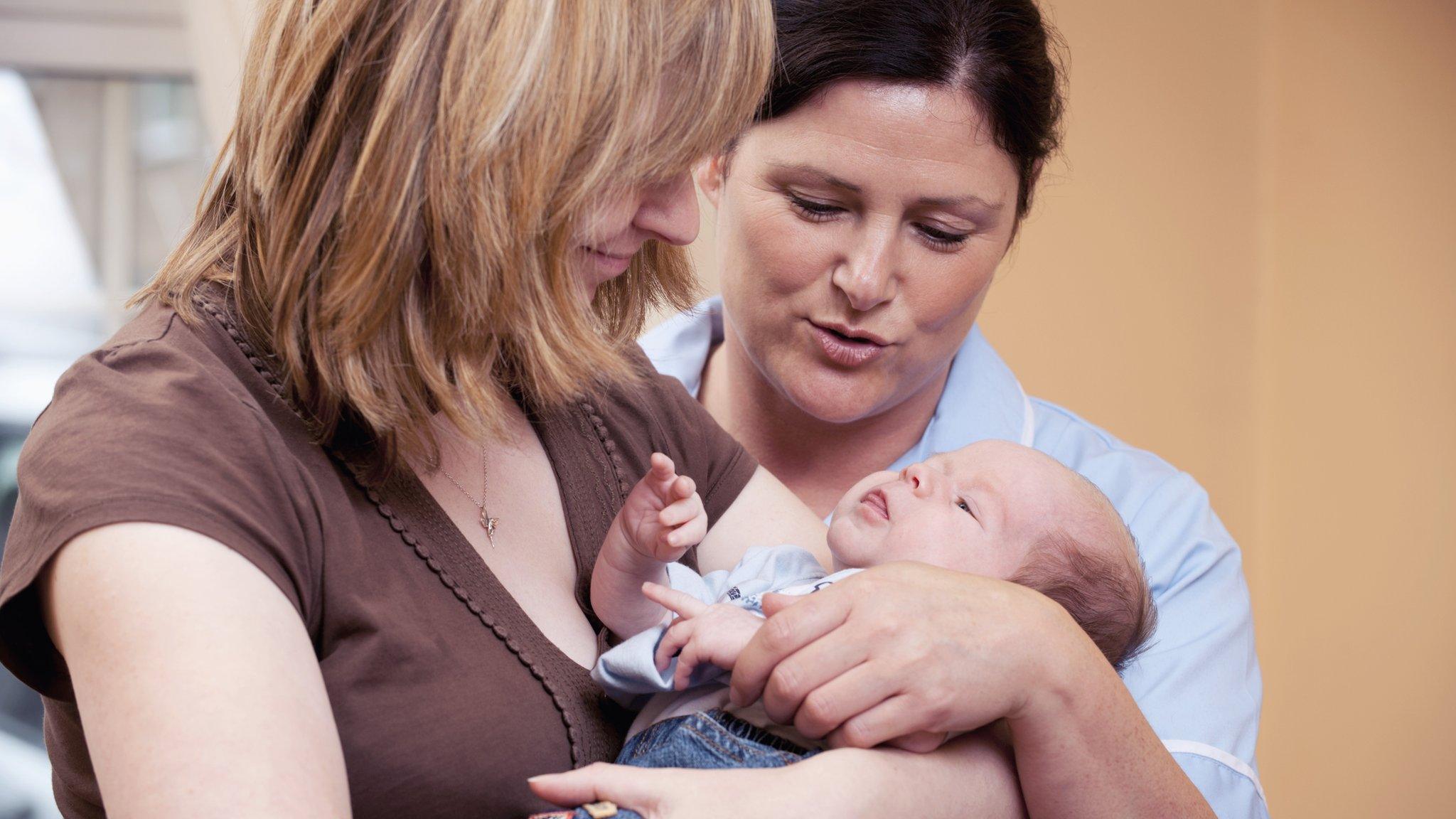NHS workers plan four-hour strike
- Published

The government said it can't afford general pay rises on top of incremental increases
Health workers in England are to stage a four-hour strike on 13 October, the Unison union has announced.
The strike - which is part of a row over pay - will begin at 7am, and will involve some nurses, healthcare assistants, and porters.
The result of the strike ballot was announced last week, with more than two-thirds of Unison members saying they were prepared to take action.
The Department of Health said the NHS couldn't afford the union's demands.
The government has given NHS staff a 1% pay rise, but not for those who get automatic progression-in-the-job increases.
Those increases are given to about half of staff and are worth 3% a year on average.
'Utter contempt'
The decision by ministers went against the recommendation of the independent pay review board, which called for an across-the-board rise.
The Unison general secretary Dave Prentis said: "NHS members don't take action often or lightly.
"For many of our members this will be the first time they walk out as the last action over pay was 32 years ago.
"The NHS runs on the goodwill of its workers, but this government has shown utter contempt for them.
"We are working with NHS employers to minimise the impact on patients."
'Greatest asset'
Unison has 300,000 members who work for the health service in England.
The strike on 13 October will be followed by four days of action short of strikes.
A spokesman for the Department of Health said the NHS could not afford a general pay rise on top of incremental increases.
"We are disappointed that Unison is planning industrial action and has rejected our proposals to give NHS staff at least 1% additional pay this year and at least a further 1% next year," he said.
"NHS staff are our greatest asset and we know they are working extremely hard.
"This is why despite tough financial times, we've protected the NHS budget and now have 13,500 more clinical staff than in 2010.
"We want to protect these increases and cannot afford incremental pay increases - which disproportionately reward the highest earners - on top of a general pay rise without risking frontline NHS jobs."
- Published24 September 2014

- Published18 September 2014

- Published22 July 2014
